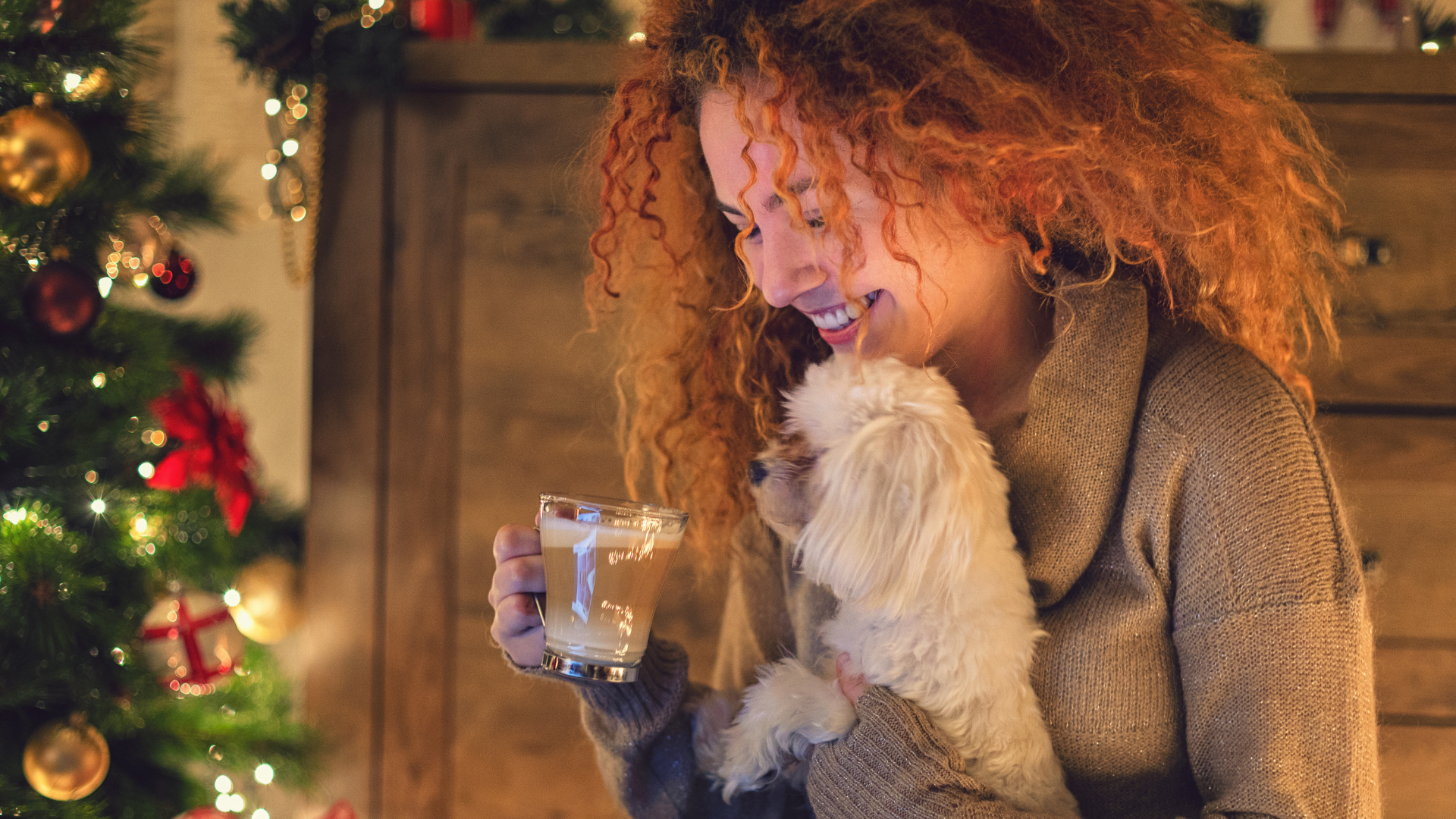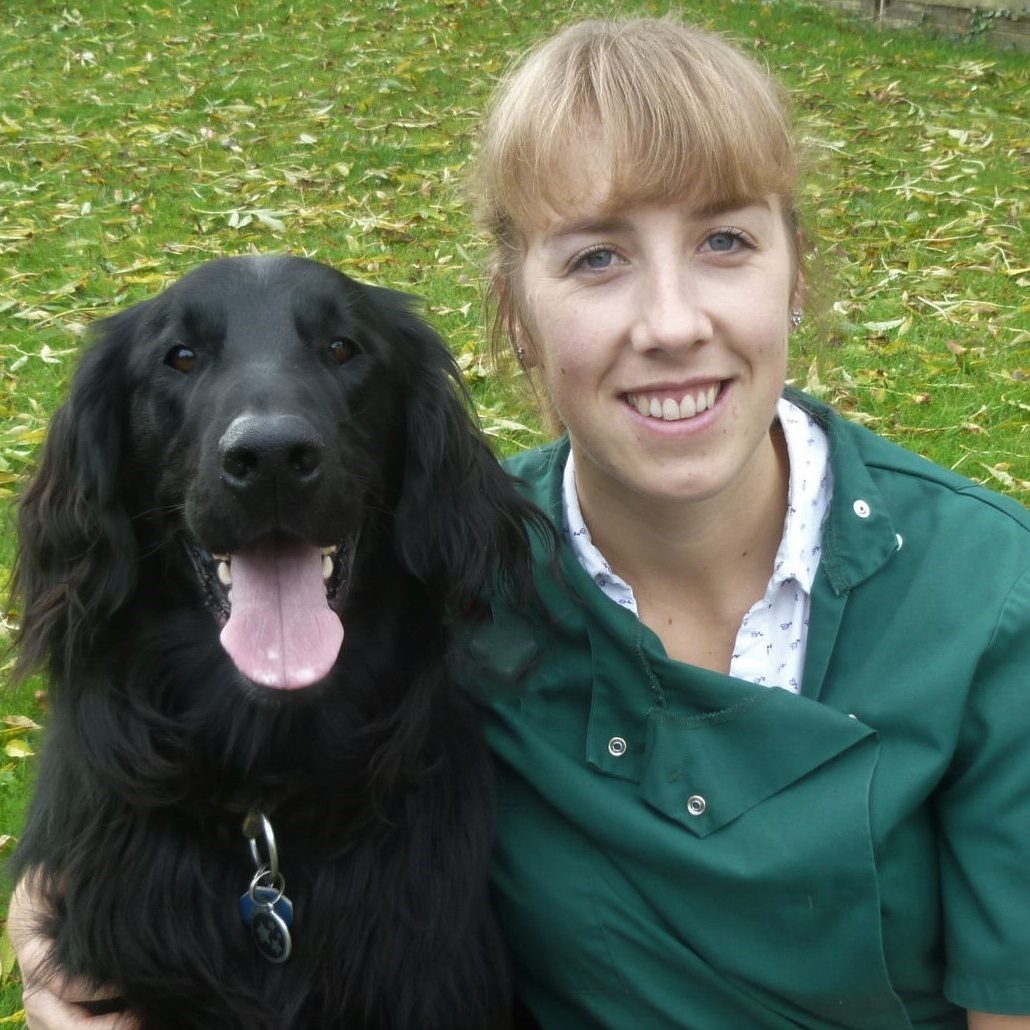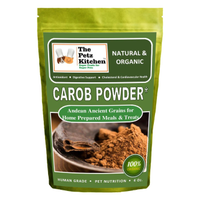How to make tasty and vet-approved hot chocolate for dogs this Christmas
This hot chocolate recipe is safe for your dog, easy to make, and tastes delicious

There's nothing better than drinking a cozy cup of hot cocoa during the festive season. While chocolate is toxic for dogs, they don't have to miss out on this classic Christmas tradition altogether as we have a tasty, safe alternative you can make for them instead.
This recipe was put together by our in-house vet Dr. Rebecca MacMillan, who assures us it's perfectly safe for your dog to consume. Her secret ingredient has a sweet, nutty caramel flavor that your dog is going to love and it's super affordable to buy.
There are lots of other ways that you can include your dog in the holiday fun, like treating them to one of the best dog advent calendars and buying them a special gift to put under the tree. But if you want to try this delicious recipe, keep on reading...
Dog-friendly hot chocolate recipe
Ingredients:
- 1/2 teaspoon of 100% carob powder
- 1/2 cup of water
- Whipped cream* (optional)
*Vet's note:
Dr. MacMillan says: "While whipped cream is not toxic to dogs, you should use it sparingly as some dogs struggle to digest dairy products, resulting in stomach upsets. Cream can also add extra calories to your dog’s diet which may result in weight gain over time."
Method:
PetsRadar Newsletter
Get the best advice, tips and top tech for your beloved Pets
1. Gently warm up the water.
2. Stir in your carob powder until it dissolves.
3. Let it cool down.
4. Check the temperature isn't too hot before serving to your dog. It's best to serve it on the cooler side rather than burning them.
5. Top with whipped cream (optional).
The Petz Kitchen Carob Powder Dog & Cat Supplement
This human-grade carob powder is 100% organic and is suitable for cats and dogs. Whether you use it for this hot choc recipe, bake it in a sweet treat, or sprinkle it on your pet's regular food, it makes a brilliant chocolate alternative.
What are the benefits of carob powder for dogs?
If you're looking for a safe chocolate alternative for dogs, carob is a brilliant choice and has similarities in taste. We asked Dr. MacMillan more about it...
She says: "It is extracted from the pods of the carob tree but unlike cocoa, it does not contain caffeine or theobromine. Carob products also don’t have the same levels of fat and sugar as real chocolate. Carob is still tasty though; it is slightly sweet and has a nutty caramel-like flavor. It also contains a variety of vitamins, minerals, and antioxidants, as well as fiber which helps to support digestive health.
"You can buy a variety of carob products for dogs, including carob drops, carob chocolate blocks, and carob powder. As with any treat, don’t go overboard. Make sure that carob does not make up more than 10% of your dog’s diet in any one day and introduce new food items to your pet gradually, to avoid tummy troubles."

Why is chocolate toxic to dogs?
Since chocolate contains caffeine and theobromine (which dogs can't easily process), it's toxic to them. That's why it's super important to opt for a pup-friendly alternative to avoid chocolate poisoning in dogs and the following symptoms:
Dr. MacMillan says: "Chocolate toxicity is dose-dependent. This means that the more chocolate your dog consumes, the more at risk they are. The levels of caffeine and theobromine can vary between different products too, with darker chocolates and cocoa powders containing higher levels.
"Even a small amount of dark chocolate can be problematic. Bodyweight also impacts toxicity, with small dogs much more susceptible to chocolate poisoning than larger dogs that consume the same amount.
"Symptoms of chocolate toxicity may not be seen for 2–24 hours post-ingestion. You must get your dog to a vet as soon as possible so that treatment is started early, even if your dog currently seems fine."

Rebecca is a veterinary surgeon who graduated in 2009 from the Royal Veterinary College in London. She has a wealth of experience in first opinion small animal practice, having done a mixture of day-to-day routine work, on-call emergency duties and managerial roles over the years. She enjoys medicine in particular and she is proud to have recently achieved a BSAVA postgraduate certificate in small animal medicine (with commendation). She writes on various feline and canine topics, including behavior, nutrition, and health. Outside of work and writing she enjoys walking her own dog, spending time with her young family and baking.

Megan is a Staff Writer at PetsRadar, covering features, reviews, deals, and buying guides. She has a wealth of experience caring for animals, having grown up with dogs, cats, horses, guinea pigs, and more throughout her life. She studied BA Journalism at the University of Westminster, where she specialized in lifestyle journalism and was editor of Smoke Radio’s lifestyle website. Megan works alongside qualified vets and accredited trainers to ensure you get the best advice possible. She is passionate about finding accurate and helpful answers to your pet-related questions.

